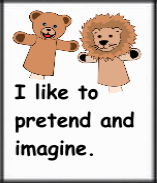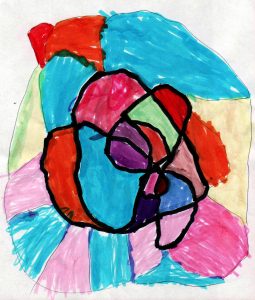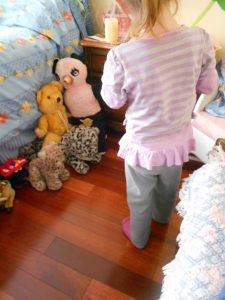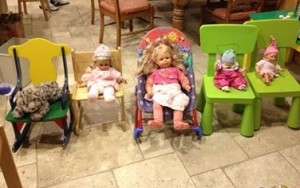According to Einstein, “Imagination is more powerful than knowledge.” Therefore, a powerful activity for preparing kids for school is pretend play.

We can’t see from the outside but as kids engage in pretend play their brains are seriously working. Brains are connecting different bits of information kids already know to actions and emotions. For example, kids may have some clues about being “the boss”, but they are trying on how that feels too. Kids are solving problems, making choices, predicting, using language, comparing, talking, linking cause and effect, and figuring out people and situations around them. No wonder Einstein says imagination is so powerful. It goes beyond just knowing.
About 2 years old, kids start engaging in pretend play. At home and play centers there are many ways to encourage imaginative play. An empty box isn’t really empty; it’s full and overflowing with possibilities. It can become anything and take kids anywhere. Old clothes are fun for dressing up. Check the recycling basket for small containers and other treasures. Drape a sheet over a table or the sofa for a blanket fort. There are many different toys kids like for pretend play, but they will often imagine and create with anything. Or even with nothing at all!

For relationships, we often need to imagine how others feel. Imaginative play opportunities help develop this skill. As kids play pretend, they can deal with stress and fears.
Play not only gives a glimpse of what’s happening thinking-wise but also feeling-wise. If you wonder how your child is feeling about going to school, a new daycare, a move to a different house, a soon-to-arrive baby brother or sister, a visit to the doctor or dentist, or some other event, you may be able to suggest playing out that situation. During the play you get a chance to see and hear your child’s perspective.

About the age of 2, kids start pretending, but that’s not where it ends. These skills get better as kids get opportunities to grow and stretch them. In the workplace, these imaginative and creative abilities are in high demand. For a play-of-the-day, can you facilitate some pretend play for your child?
P.S. You don’t need to imagine what’s on the rest of the developmental checklist–check the Before Kindergarten infographic. You can also see the following and previous posts.
